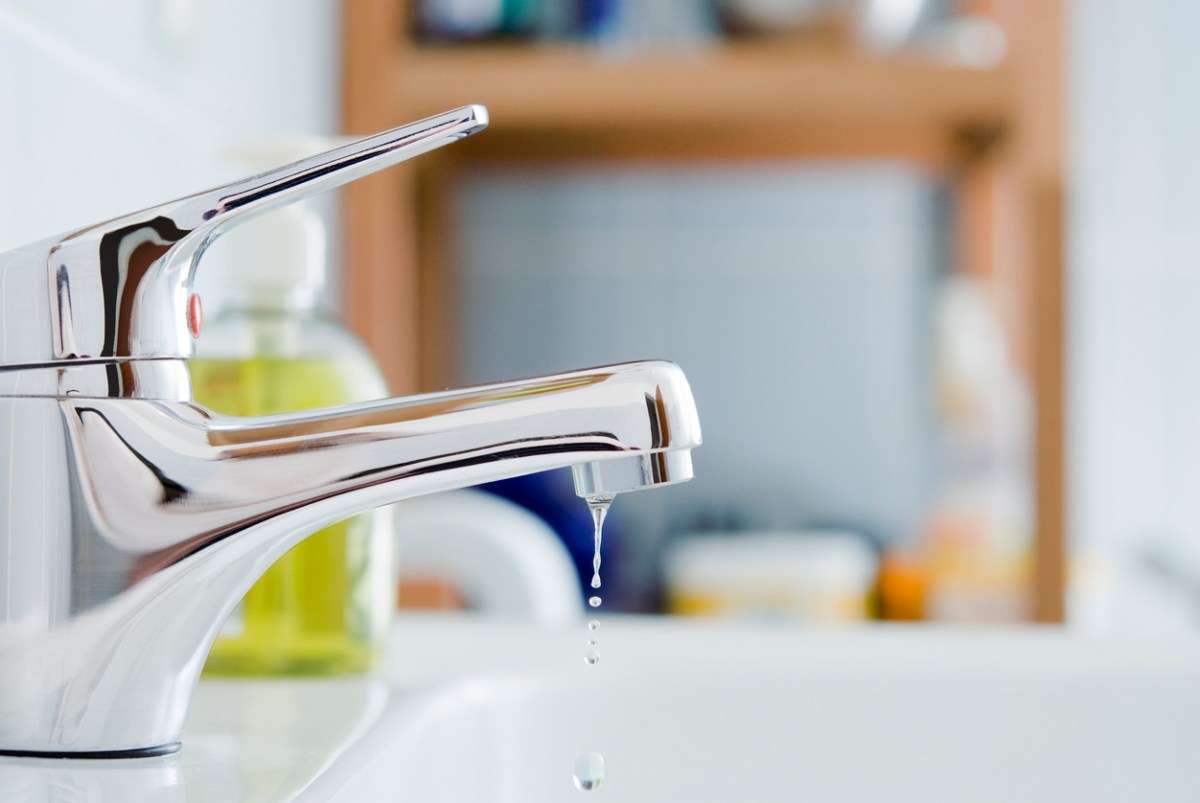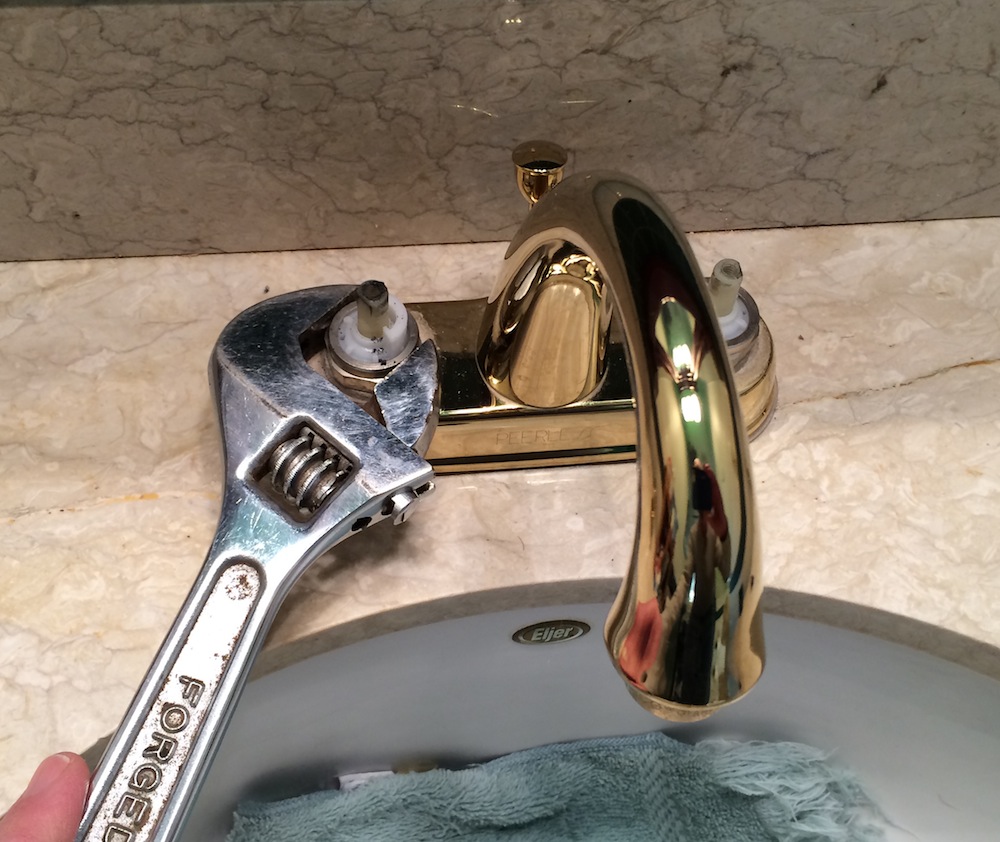What're your opinions concerning Should I Repair or Replace a Leaky Faucet??

Leaking taps may appear like a minor inconvenience, but their impact goes beyond just the aggravation of the sound. From wasting water to incurring unnecessary monetary costs and health dangers, disregarding a dripping tap can lead to numerous repercussions. In this short article, we'll delve into why it's crucial to resolve this typical household concern immediately and efficiently.
Wastefulness of Water
Environmental Influence
Dripping taps add substantially to water wastage. According to the Environmental Protection Agency (EPA), a solitary faucet leaking at one drip per secondly can squander greater than 3,000 gallons of water each year. This not just pressures water resources however likewise influences communities and wildlife based on them.
Financial Expenses
Boosted Water Costs
Past the ecological influence, dripping faucets can inflate water expenses significantly. The gathered waste gradually equates right into greater energy expenses, which might have been avoided with timely fixings.
Prospective Building Damages
Furthermore, extended trickling can cause damage to fixtures and surface areas bordering the tap. Water accumulation can cause staining, deterioration, and also architectural concerns if left neglected, causing additional repair prices.
Health Concerns
Mold And Mildew and Mold Growth
The constant visibility of dampness from a dripping tap develops a suitable environment for mold and mold development. These fungi not only jeopardize interior air high quality but additionally present health dangers, particularly for people with breathing conditions or allergies.
Waterborne Diseases
Stagnant water in trickling faucets can end up being a breeding place for germs and various other virus, increasing the threat of waterborne diseases. Pollutants such as Legionella microorganisms prosper in stationary water, potentially causing serious illnesses when ingested or inhaled.
Do it yourself vs. Specialist Fixing
Pros and Cons of DIY Fixing
While some may try to deal with a dripping tap themselves, do it yourself repairs come with their own set of difficulties. Without appropriate understanding and tools, DIY attempts can exacerbate the problem or bring about incomplete repairs, extending the trouble.
Advantages of Hiring a Specialist Plumber
Hiring a specialist plumber guarantees that the underlying root cause of the leaking tap is addressed properly. Plumbing technicians possess the know-how and devices to diagnose and fix faucet issues efficiently, saving time and decreasing the risk of more damage.
Step-by-Step Guide to Fixing a Dripping Tap
Tools Required
Before trying to repair a dripping tap, gather the required devices, consisting of a flexible wrench, screwdrivers, replacement parts (such as washers or cartridges), and plumber's tape.
Typical Faucet Issues and Their Solutions
Recognize the kind of faucet and the particular concern causing the drip. Typical troubles consist of worn-out washers, corroded shutoff seats, or malfunctioning O-rings. Describe maker directions or on the internet tutorials for detailed guidance on repair work.
Safety nets
Routine Upkeep Tips
To avoid dripping taps, execute regular maintenance such as cleaning aerators, checking for leaks, and replacing damaged components quickly. In addition, take into consideration mounting water-saving tools or updating to extra reliable components.
Relevance of Prompt Services
Addressing trickling taps as soon as they're discovered prevents more water wastefulness and prospective damage, eventually saving both water and cash over time.
Impact on Residential Or Commercial Property Worth
Understanding of Well-Maintained Residential Or Commercial Property
Keeping a property in good condition, consisting of addressing maintenance concerns like dripping faucets, boosts its regarded value and worth among potential customers or occupants.
Influence on Resale Worth
Features with properly maintained plumbing fixtures, including taps, command higher resale worths in the real estate market. Addressing leaking faucets can add to a favorable impression during building inspections and negotiations.
Environmental Duty
Individual Contribution to Conservation
Taking obligation for taking care of leaking taps lines up with wider initiatives towards water preservation and environmental sustainability. Every person's actions collectively make a significant influence on protecting priceless resources.
Sustainable Living Practices
By focusing on punctual repair work and embracing water-saving routines, people add to lasting living techniques that profit both existing and future generations.
Verdict
Resolving a trickling faucet exceeds simple ease; it's a vital step toward saving water, decreasing economic expenses, and guarding health and wellness and building. Whether with do it yourself fixings or expert assistance, doing something about it to deal with trickling faucets is a little yet impactful method to promote accountable stewardship of sources and add to a healthier, much more lasting future.
How to Fix a Leaky Faucet: Step-by-Step Repair Guide
A leaky faucet may seem like a simple annoyance, but if it's not fixed promptly, that leak could cost hundreds to potentially thousands. From water damage to mold, mildew, and high water bills, even a tiny leak can be catastrophic if left unattended. Damage like this can even affect the overall value of your home, so it's important to take the right approach for leaky faucet repair. You may need the help of a plumber in some cases, but we've got a few tips you can try on how to fix a leaky faucet before calling the pros.
Four Faucet Types
When you're learning how to fix a leaky faucet, the first step is knowing what kind of faucet you're working with! There are four common types.
Cartridge Faucets
Cartridge faucets come in one- or two-handled varieties. In one-handled cartridge faucets, hot and cold water combines in a single cartridge. In the two-handled versions, hot and cold water are controlled separately and mixed in the faucet.
Ball Faucets
Ball faucets have a single lever you push up and down to adjust the pressure and rotate to change the temperature. A slotted metal ball controls the amount of water allowed into the spout.
Compression Washer Faucets
They're the oldest type of faucet, but they're still used in many homes — especially older ones. Compression faucets have two separate handles that, when turned, raise or lower the washer that seals a water valve. This valve stops water from flowing through the faucet when it is turned off.
Disc Faucets
Disc faucets rarely need to be repaired due to their maintenance-free design. The water flow is controlled by two discs — the upper one raises and lowers against a fixed lower disc, creating a watertight seal. If your disc faucet starts leaking, you may need to replace the seals or clean residue buildup from the inlets.
Fixing a Leaky Faucet
Step 1: Turn Off the Water
Whether you're learning how to fix a leaky bathtub faucet or how to fix a leaky kitchen faucet, always turn off the water supply to your working area when you're fixing a leak. The last thing you want is a flood added to your list of things to fix.
Look for the shutoff valves below your sink or around the tub and turn them clockwise to stop the water flow. If your faucet doesn't have shutoff valves, you may need to turn off the water for the whole house. Check to make sure it's off by turning the faucet on. If nothing comes out, you're ready to start the repair.
Step 2: Take Apart the Faucet
How you disassemble your faucet depends on the type of fixture you have. You can use a flathead screwdriver to remove the caps on top of the handle or handles for cartridge and compression faucets. Inside, you should see handle screws. Unscrew these with a screwdriver to remove the handle.
Disc- and ball-style faucets will typically have an inlet screw near the handle, and removing that will reveal the interior of the faucet.
Detach the Valve Stem
For cartridge- and compression-style faucets, you'll see the inner valve stem or cartridge once you remove the faucet handles. If you have a compression faucet, unscrew the brass valve stem. If you have a cartridge faucet, pull out the cartridge. If your cartridge has been in place for a while, it may require some tools or extra force to remove it due to mineral deposits.
Examine and Replace Parts
Once you've removed the parts, check them out to confirm what needs to be replaced. You may see corroded rubber washers, O-rings, stems, or cartridges. On a ball-style faucet, check the seats and springs for damage.
If you need to repair a leaky disc faucet, check the inlet and seals on the lower disc.
Once you determine what parts must be replaced, visit your local hardware store. Bring the damaged parts with you to ensure you can purchase the correct components to replace them.
Clean Valves and Faucet Cavity
If you've removed a stem or cartridge, you may notice mineral buildup in the faucet's threads. Use white vinegar to clean the valve seat by soaking it for a few minutes, then scrub it away with a soft toothbrush and rinse with warm water. You can also clean the interior of the faucet in the same way.
Reassemble the Faucet
Once your faucet is cleaned and the required parts have been replaced, it's time to reassemble it. Put the pieces back together and slowly turn the water supply back on. Doing this slowly is crucial because too much initial water pressure can damage the new hardware you've just installed.
https://homewarranty.firstam.com/blog/how-to-fix-leaky-faucet

I have been very interested by 4 Common Reasons for a Leaky Faucet and I am assuming you enjoyed reading the page. Feel free to take the opportunity to distribute this blog post if you liked it. Thank you for taking the time to read it.
Comments on “My Benefits of Correcting a Leaking Faucet”